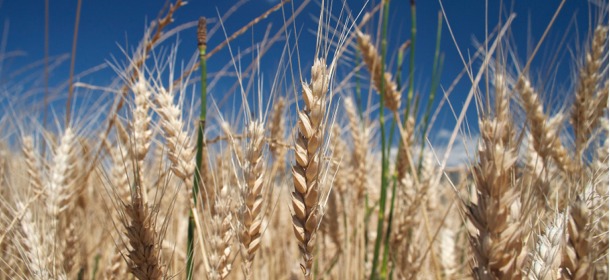Environment
Monsanto’s ‘Genetic Pollution’ Threatens US Wheat Industry
Monsanto may have pushed too hard and too far. Their supposedly sequestered Oregon trial of GM wheat escaped, and was found years later and miles away. As a result, other countries are refusing to allow any wheat exports from the US in the fear of contamination.

Wheat Field in Oregon, by Elias Gayles
by Andreas Germanos, Common Dreams
The U.S. wheat industry is reaping the swift global repercussions of the genetic pollution caused by Monsanto’s rogue glyphosate-resistant wheat on an Oregon farm.
“This will have an impact worldwide, because our trading partners do not want genetically modified wheat,” Michael Hansen, senior scientist at Consumers Union, told Bloomberg.
Katsuhiro Saka, a counselor at the Japanese Embassy in Washington, added, “In most countries the unapproved genetically modified wheat would be a target of concern.”
Already, as the New York Times reports,
Japan and South Korea suspended some imports of American wheat, and the European Union urged its 27 nations to increase testing, after the United States government disclosed this week that a strain of genetically engineered wheat that was never approved for sale was found growing in an Oregon field.
Seed giant Monsanto tested its genetically engineered (aka genetically modified) glyphosate-resistant wheat variety between 1998 and 2005 in 16 states.
But fear of such international backlash is what prompted Monsanto to abandon its GE wheat project, as Emma Hedman explains in Friends of the Earth’s blog:
In 2004 Monsanto, the world’s biggest genetically engineered seed company, pulled their GE wheat from the USDA’s approval process because of growing pressure from some of the most important international importers of United States wheat, including Japan, the UK, Malaysia, and Canada. These international consumers were weary of having genetically engineered foods as part of their food supply, and because Monsanto realized they would have no market for their wheat (since the US exports over 50% of its wheat), it abandoned the project. This is of course after they had already implemented field tests of the wheat in 16 states. The last field test of this GE wheat in Oregon was supposed to have been in 2001, and yet here it is.
The finding of the rogue wheat has prompted sharp criticism from food safety and environmental advocates.
This was not from a recent trial, which means it’s been sitting there in the environment,” the Washington Post reports Andrew Kimbrell, executive director of the Center for Food Safety, a nonprofit group, as saying. “It’s highly doubtful that it’s just on one farm. If it’s out there, it’s out there.
In a similar statement, Mike Flowers, a cereal specialist at Oregon State University, told Reuters, “We can’t really say if it is or isn’t in other fields. We don’t know.”
Our farmers and food supply are severely jeopardized by such contamination episodes, yet the biotech industry responsible faces no accountability,” Bill Freese, science policy analyst for Center for Food Safety, said in a statement. “Moreover, the industry operates with little transparency, leaving both the public and regulators in the dark,” he said.
The only way to avoid more such episodes, write Greenpeace’s Janet Cotter and Eric Darier, is to drop genetically engineered crops entirely:
The Monsanto GE wheat contamination shows again that governments and industry measures to prevent contamination are failing. The only permanent solution is to immediately ban the field testing of GE crops.
More fundamentally, the world urgently needs to switch to ecological farming and get out of the chemical/GE industrial agriculture treadmill and the environmental risks it represents.
_________________________________
Tagged agribusiness, ge wheat, genetic engineering, genetic modification, genetic pollution, gm wheat, gmo, greenpeace genetic engineering, monsanto escaped wheat, monsanto ge wheat, monsanto genetic pollution, monsanto wheat, oregon ge wheat, oregon state university genetic engineering













